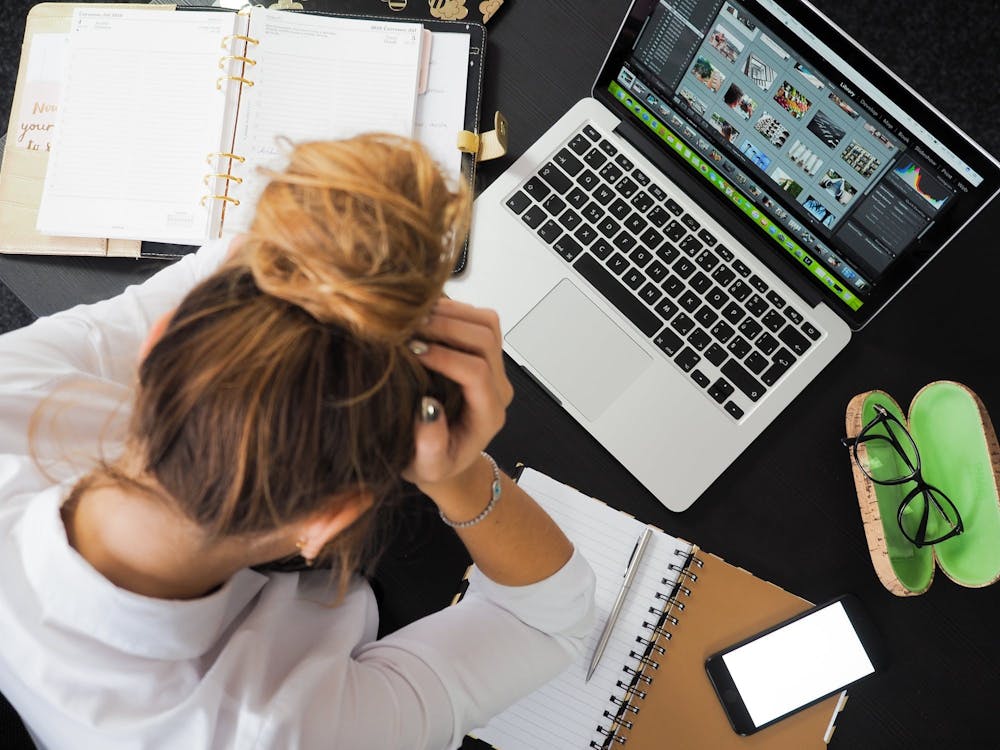Kean University announced on Thursday, March 19, that remote learning would continue through the end of the Spring semester in May. As students encounter a whole new set of stresses in their new, online study setting, students should pay close attention to their mental health.
Kean transitioned to online courses after Spring Break, beginning on March 16, and has since extended the new procedures through May. Students have expressed a range of concerns with online learning, citing the difficulties of understanding course material through remote lecture, the personal challenge of self-motivating from isolated, at home spaces, the social detriments of being away from colleagues and friends and so on.
With nearly half of the Spring semester remaining, students have to acquaint themselves with new strategies and priorities that help them remain engaged with classes, connected to their peers and maintain their mental and physical energy in this unfamiliar space.
Jawahn Gasque, a sophomore communication major studying media and film, said, "My experience hasn't been bad, but I feel like we're getting more work than we did [before]. I was stressing before [online coursework] started."
An online course load that's different, sometimes more demanding in lieu of in-person meetings, contributes to students' stress, and should be combated with a series of healthy mental and social adjustments.
Fortunately, online communications is ubiquitous for 2020. Generally, students and other young people already keep in touch with friends and family over the phone, through email, through social media and the like. Popbuzz recommends that all ensure they have the necessary contact information to keep in touch with friends and family. In students' cases, all should use these communications channels to keep in contact with classmates and professors. Doing so can help clarify details of assignments and subjects, as well as maintain the sense of being engaged with classes through normal discourse.
In addition to holding onto social connections, Popbuzz recommends being cautious with the amounts and kinds of social media one absorbs. As easy as it is to spend more time on social media when working entirely from home, it's best to actively take breaks from it. It may also be important to limit the accounts and trends one follows to those that are official and reliable - and those that don't contribute to stress. It is even recommended to take time completely away from social media, connect with the tangible, in-person elements around oneself, rather than spending more time in the digital world.
Further, it's important not to "burn out" in general. It is easy to over-consume social media, entertainment and other content online during isolation. One has to actively measure when they've taken too long binge-watching television or scrolling through social media updates, and sever themselves from these activities to refresh and recharge their mental health.
The Centers for Disease Control and Prevention (CDC) also warns that bodily and behavioral stresses may result in changes to one's sleep and eating tendencies, trouble concentrating and an increase in the consumption of alcohol, tobacco and other drugs. Each response should be monitored or avoided to maintain a healthy mentality during this time.
In addition to taking breaks from regular work and entertainment, the CDC strongly recommends keeping a healthy diet, exercising regularly, stretching and meditation. Students that are also parents are advised to set good examples for kids in their routines, to limit stress induced behaviors and to focus on positives (not over-dramatizing news stories or staying focused on the news all day).
Among their classes, work and other responsibilities, students should focus on keeping as "normal" and consistent a schedule and a mentality as possible. While so much changes so quickly, the best way to preserve mental health is to limit exposure to stressors that interfere with one's efforts to adjust to a new lifestyle. Students can accomplish this by diligently remembering to take time to focus on their mental health amid assignments and new stressors.







